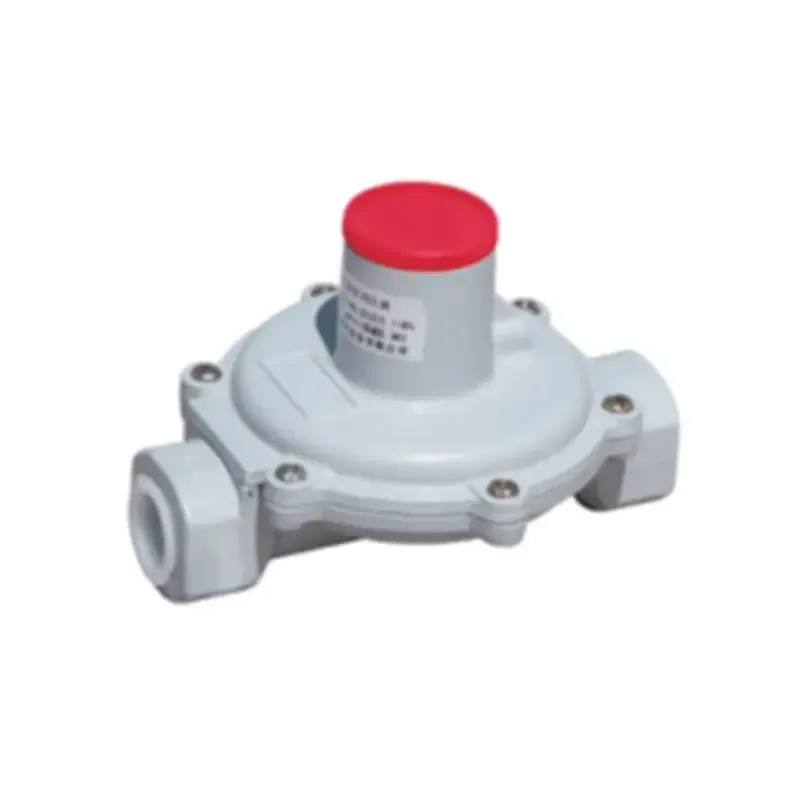
Nov . 10, 2024 06:13
Back to list
Exploring the Functionality and Applications of Pneumatic Control Valves in Automation Systems
Understanding Pneumatic Control Valves A Key Component in Automation
Pneumatic control valves are essential devices in the automation and control systems used in various industries. Operating on the principles of compressed air, these valves play a crucial role in regulating air flow, pressure, and direction within pneumatic systems. Their reliability and efficiency make them invaluable in applications ranging from manufacturing to food processing and even aerospace.
The Basics of Pneumatic Control Valves
A pneumatic control valve consists of several components, including the body, actuator, and control element. The body houses the pneumatic control mechanism, which can increase or decrease the air flow and pressure. The actuator, usually powered by compressed air, moves the control element, which can be a diaphragm, piston, or spool. When the actuator receives a signal from a control system, it adjusts the position of the control element, thereby controlling the amount of air passing through the valve.
Types of Pneumatic Control Valves
There are several types of pneumatic control valves, each designed for specific applications. Some common types include
1. Directional Control Valves These valves control the direction of airflow in a pneumatic system. They can divert the flow of air to different paths and are often used in conjunction with cylinders and other actuators.
2. Regulating Valves These control valves maintain a set pressure level in a pneumatics system. By continuously adjusting the flow, they ensure that the system operates within desired parameters.
3. Flow Control Valves These valves adjust the speed of an actuator by regulating the flow rate of compressed air. They are crucial in applications where the speed of operation must be finely controlled.
4. Shut-off Valves Also known as isolation valves, these devices can completely stop the flow of air, providing a means to isolate parts of a pneumatic system for maintenance or safety reasons.
pneumatic control valve

Applications of Pneumatic Control Valves
Pneumatic control valves are widely used in various industries. In manufacturing, they are integral to automating processes such as assembly lines, packaging, and material handling. By controlling the movement of pneumatic cylinders and actuators, these valves help improve efficiency and reduce manual labor.
In the food and beverage industry, pneumatic control valves are employed for processes such as mixing, bottling, and transporting products. Their use ensures that processes occur safely and hygienically, maintaining high standards of quality.
The automotive sector also benefits significantly from pneumatic control valves, where they are used for applications like painting, assembly, and testing components. The precision and reliability of pneumatic control valves help enhance productivity and ensure quality control.
Advantages of Pneumatic Control Valves
One of the primary advantages of pneumatic control valves is their fast response time. The quick actuation of these valves allows for rapid adjustments to be made in the system, which is crucial in dynamic processes. Moreover, pneumatic systems generally offer a safer alternative to hydraulic systems, as they operate with air rather than potentially hazardous fluids.
Pneumatic control valves are also relatively low maintenance. The compressed air used in these systems can often be made from ambient air, drastically reducing the potential for leaks and the need for complex fluid management systems. Additionally, they are generally less expensive to install and maintain compared to other control methods.
Conclusion
In conclusion, pneumatic control valves are vital components in the world of automation, serving critical roles in various industrial applications. Their ability to regulate air flow and direction adds efficiency, safety, and reliability to systems across multiple sectors. With advancements in technology, the future of pneumatic control valves looks promising, continuing to support the evolving needs of industries worldwide. Understanding their operation and applications can help businesses harness their full potential, leading to improved productivity and innovation.
Latest news
-
Safety Valve Spring-Loaded Design Overpressure ProtectionNewsJul.25,2025
-
Precision Voltage Regulator AC5 Accuracy Grade PerformanceNewsJul.25,2025
-
Natural Gas Pressure Regulating Skid Industrial Pipeline ApplicationsNewsJul.25,2025
-
Natural Gas Filter Stainless Steel Mesh Element DesignNewsJul.25,2025
-
Gas Pressure Regulator Valve Direct-Acting Spring-Loaded DesignNewsJul.25,2025
-
Decompression Equipment Multi-Stage Heat Exchange System DesignNewsJul.25,2025

